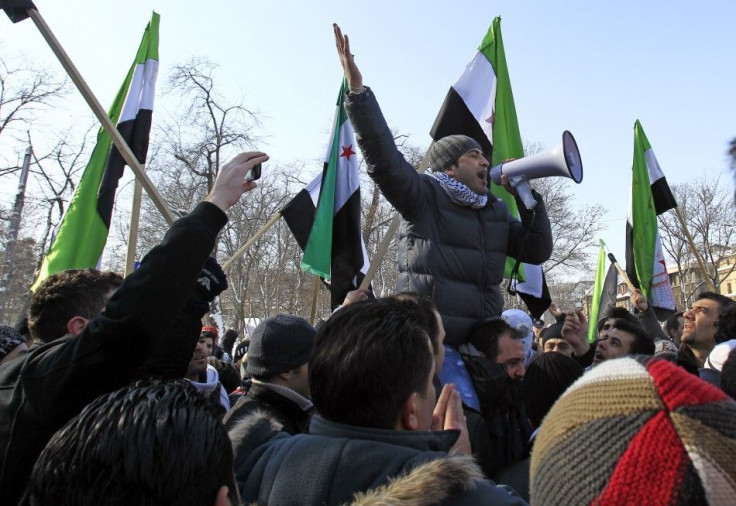Will U.S. Arm Syrian Rebels?

Senators John McCain and Lindsey Graham threw the Syrian gauntlet down to President Barack Obama, saying that anti-Assad protesters should be armed by the U.S.
I believe there are ways to get weapons to the opposition without direct United States involvement ... The Iranians and the Russians are providing Bashar Assad with weapons. People that are being massacred deserve to have the ability to defend themselves, McCain, a former presidential candidate, said, according to the NYT.
He said rather than being not opposed to giving weapons to the Syrian opposition, he is affirmative on such a plan.
The official position of the Obama administration is against arming the Syrian rebels. However, some recent noises have been more ambivalent.
Following the UN Security Council vote on a Syria resolution, which was vetoed by Russia and China, U.S. Secretary of State Hillary Clinton had failed to lay out a clear strategy. She said Washington would continue to support the anti-government protesters' peaceful political plans for change, but acknowledged that a violent movement was shaping up in Syria.
Many Syrians, under attack from their own government, are moving to defend themselves, which is to be expected, Clinton had said.
The American policy ambivalence on Syria grew in the following days, with both the White House and the State Department spokespersons lately saying that the administration is open to other means if political solution is not possible.
We still believe that a political solution is what's needed in Syria ... We don't want to take actions that would contribute to the further militarization of Syria, because that could take the country down a dangerous path. But we don't rule out additional measures, White House spokesman Jay Carney said Tuesday.
State Department spokeswoman Victoria Nuland echoed this line, saying: ... if we can't get Assad to yield to the pressure that we are all bringing to bear, we may have to consider additional measures.
According to McCain and Graham, both members of the Senate Armed Services Committee, the removal of Assad through military means would also help weaken Iran, the closest ally of Damascus.
Breaking Syria apart from Iran could be as important to containing a nuclear Iran as sanctions ... If the Syrian regime is replaced with another form of government that doesn't tie its future to the Iranians, the world is a better place, Graham said.
However, it remains to be seen if the administration would approve of such a plan. The conventional wisdom is that a direct action by the U.S. in Syria would worsen the crisis involving Iran and Israel over the former's alleged nuclear project. President Obama will also have to consider if it was worth opening another warfront in the Islamic world in an election year.
It will certainly be a momentous decision for Obama to take. For, merely arming the Syrian rebels through third parties -- in this case the Arab League -- will not serve any purpose; the rebels will need to be ably assisted with military hardware as well as by the enforcement of a no-fly zone, similar to the one carried out in Libya.
And that would be dangerously close to war. Also, any direct military action involving U.S. troops on the ground might have disastrous consequences, given that Syria is the hot bed of the dreaded Hezbollah, which can mire even mighty opponents in long-drawn guerilla warfare.
However, Senators McCain and Graham, and many others like them, argue that the humanitarian crisis in Syria is too critical to be glossed over. Dozens are dying there every day as Assad's forces try to suppress rebel advances across the country.
At least 30 people were killed in the rebel stronghold of Homs on Tuesday, prompting the Red Cross to call for a daily two-hour ceasefire so that it could deliver emergency medical aid.
Clinton will hold a meeting in Tunis Friday with representatives of 70 countries dubbed as the Friends of Syria -- an opportunity for the Obama administration to assess straws in the wind and retool the Syrian strategy.
© Copyright IBTimes 2024. All rights reserved.











